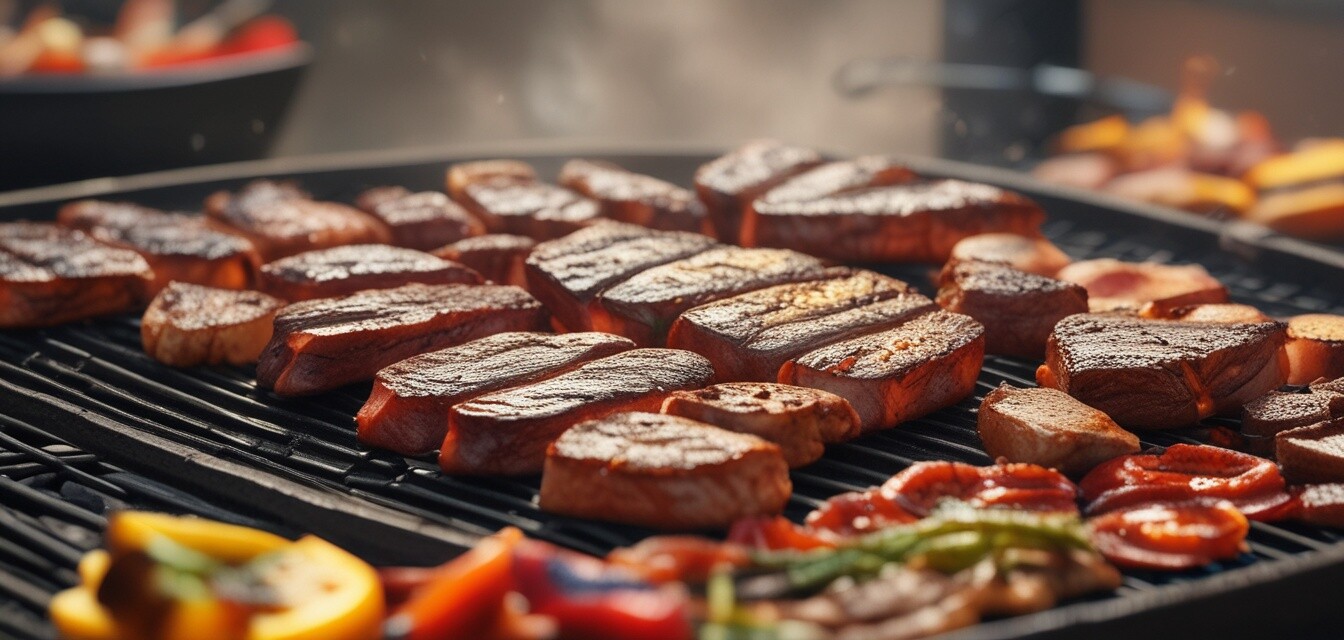
Secrets to achieving perfectly grilled meats
Key Takeaways
- Marination enhances flavor and tenderness.
- Managing grill temperature is crucial for even cooking.
- Using the right grilling techniques can elevate your meals.
- Pay attention to resting and slicing for the best results.
Grilling is an art form that can turn ordinary meals into extraordinary feasts. Whether you’re cooking for friends or family, the secrets to perfectly grilled meats lie in the details. Here, we reveal essential tips and techniques that will not only improve your skill but transform the way you grill forever.
The importance of marination
Marination is one of the foundational techniques for unlocking flavor in your grilled meats. A good marinade not only enhances taste but also helps to tenderize the meat. Here’s what you need to know about marinating:
| Technique | Benefits |
|---|---|
| Acidic Marinades (e.g., vinegar, citrus juice) | Tenderizes meat and adds brightness. |
| Oily Marinades (e.g., olive oil) | Locks in moisture during grilling. |
| Herb-Based Marinades (e.g., fresh herbs, garlic) | Adds layers of flavor and aroma. |
Marination tips:
- Marinate for at least 30 minutes, but longer is often better—aim for 4-6 hours.
- Always marinate in the refrigerator to prevent bacterial growth.
- Use a resealable plastic bag for easy clean-up and even distribution.
Mastering grill temperature
Grill temperature is critical for achieving that perfect sear and keeping your meat moist. Here are the primary heat zones to consider:
| Temperature Range | Best For |
|---|---|
| Low (225-250°F) | Slow cooking, smoking meats. |
| Medium (300-350°F) | Cooking chicken, vegetables, and fish. |
| High (400-500°F) | Searing steaks, burgers, and chops. |
Temperature control tips:
- Keep a grill thermometer handy to monitor heat levels.
- Create direct and indirect heat zones by adjusting the charcoal or gas burners.
- Don’t flip meats frequently; let them sear properly to lock in juices.
Grilling techniques that make a difference
Utilizing the right grilling techniques can help you achieve exceptional results. Here are some tried and tested techniques that elevate your grilling game:
- Searing: Start cooking at high heat to create a crust, then move to indirect heat to cook through.
- Resting: Allow meats to rest for several minutes post-cooking; this redistributes juices for better flavor.
- Slicing: Cut against the grain to ensure tender bites.
Understanding different types of grills
Your choice of grill impacts the final flavor and texture of your meats. Here are the different types of grills and what they bring to the table:
- Charcoal Grills: Known for their rich smoky flavor and high heat.
- Gas Grills: Convenient and offer precise temperature control.
- Wood Pellet Grills: Provide a unique flavor profile with easy-to-use settings.
- Swing Grills: Feature a rotating cooking surface for even cooking.
Final thoughts
Perfectly grilling meats is a combination of preparation, technique, and patience. By mastering these steps, you will not only impress your guests but also forge unforgettable memories over delicious meals. Dive deeper into topics related to grilling techniques, and keep exploring how to enhance your grilling skills.
Pros
- Enhances flavors and textures of grilled meats.
- Allows for creativity in cooking methods.
- Offers a social and engaging cooking experience.
Cons
- Requires attention to detail and technique.
- Weather can impact outdoor grilling plans.
- Initial setup and equipment can be costly.